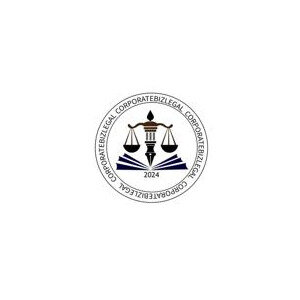Best Antitrust Lawyers in Nepal
Share your needs with us, get contacted by law firms.
Free. Takes 2 min.
Or refine your search by selecting a city:
List of the best lawyers in Nepal
About Antitrust Law in Nepal
Antitrust law in Nepal is designed to promote competition and protect consumers by prohibiting business practices that result in unlawful monopolies or unfair trade practices. The primary legislation governing antitrust activities in Nepal is the Competition Promotion and Market Protection Act, 2063 (2007). This Act aims to ensure a free and fair competitive environment by regulating anti-competitive agreements, abuse of dominant positions, and specific mergers that could harm the market. It aligns closely with international norms to safeguard free competition and support economic growth.
Why You May Need a Lawyer
Individuals and businesses may require legal assistance in antitrust situations for several reasons. Common scenarios include facing allegations of engaging in monopolistic practices, needing to understand compliance requirements during mergers and acquisitions, or seeking legal redress against anti-competitive practices by competitors. Lawyers who specialize in antitrust law can provide invaluable guidance in navigating these complexities, ensuring legal compliance, and advocating on behalf of clients in disputes or litigation.
Local Laws Overview
The key aspects of local laws relevant to antitrust in Nepal include the regulation of anti-competitive agreements, such as price-fixing, market sharing, and bid-rigging. The legislation also deals with the abuse of dominant positions, referring to practices that unfairly restrict competition or harm consumers. The law specifies certain criteria for evaluating mergers and acquisitions to prevent substantial market concentration that could undermine competitive dynamics. Enforcement is primarily handled by the Department of Commerce, Supplies, and Consumer Protection Management, which has the authority to investigate and penalize violations.
Frequently Asked Questions
What is the main purpose of Antitrust law in Nepal?
The main purpose of Antitrust law in Nepal is to preserve competitive market conditions, protect consumer interests, and prevent anti-competitive practices among businesses.
What constitutes an anti-competitive agreement?
Anti-competitive agreements are arrangements between businesses that unfairly restrict competition, such as price-fixing, bid-rigging, or dividing markets among competitors.
What actions are considered abuse of a dominant position?
Abuse of a dominant position includes practices such as predatory pricing, imposing unfair trade practices, or restricting market access to competitors.
How are mergers and acquisitions regulated under Nepalese Antitrust law?
Mergers and acquisitions are regulated to ensure they do not substantially lessen competition in the market. The law requires scrutiny of such deals to prevent market dominance.
Who enforces Antitrust laws in Nepal?
Antitrust laws in Nepal are primarily enforced by the Department of Commerce, Supplies, and Consumer Protection Management.
What penalties exist for violating Antitrust laws in Nepal?
Penalties for violating Antitrust laws can include fines, the requirement to alter business practices, and in some cases, criminal charges against individuals responsible for breaches.
Can consumers report anti-competitive practices?
Yes, consumers can report anti-competitive practices to the Department of Commerce, Supplies, and Consumer Protection Management, which can initiate investigations.
How can businesses ensure compliance with Antitrust laws?
Businesses can ensure compliance with Antitrust laws by conducting regular audits, seeking legal advice for mergers and agreements, and providing employee training on relevant legal standards.
Are there legal provisions for exemptions under Antitrust law?
Certain agreements or practices may be exempted if they are shown to result in significant benefits, such as efficiency or consumer welfare, though these are assessed on a case-by-case basis.
What should I do if I am accused of an Antitrust violation?
If accused of an Antitrust violation, it is crucial to seek legal advice promptly to understand the allegations, rights, and potential legal strategies for defense.
Additional Resources
Consider consulting the following resources or organizations for more information or assistance in Antitrust matters:
- Department of Commerce, Supplies, and Consumer Protection Management
- Nepal Bar Association for legal representation and advice
- Business professional organizations for industry-specific guidance
Next Steps
If you believe you need legal assistance regarding Antitrust issues, consider the following steps:
- Identify the specific legal needs you have related to Antitrust matters.
- Consult with a legal professional who specializes in Antitrust law for initial advice.
- Review and gather all necessary documentation or evidence related to your case.
- Determine your options based on legal advice received and proceed accordingly.
Lawzana helps you find the best lawyers and law firms in Nepal through a curated and pre-screened list of qualified legal professionals. Our platform offers rankings and detailed profiles of attorneys and law firms, allowing you to compare based on practice areas, including Antitrust, experience, and client feedback.
Each profile includes a description of the firm's areas of practice, client reviews, team members and partners, year of establishment, spoken languages, office locations, contact information, social media presence, and any published articles or resources. Most firms on our platform speak English and are experienced in both local and international legal matters.
Get a quote from top-rated law firms in Nepal — quickly, securely, and without unnecessary hassle.
Disclaimer:
The information provided on this page is for general informational purposes only and does not constitute legal advice. While we strive to ensure the accuracy and relevance of the content, legal information may change over time, and interpretations of the law can vary. You should always consult with a qualified legal professional for advice specific to your situation.
We disclaim all liability for actions taken or not taken based on the content of this page. If you believe any information is incorrect or outdated, please contact us, and we will review and update it where appropriate.
Browse antitrust law firms by city in Nepal
Refine your search by selecting a city.














